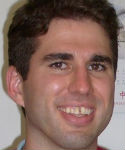 |
|
Postdoctoral Fellow, School of Computer Science, McGill University
Mark M. Wilde received his B.S. degree in computer engineering from Texas A&M University in 2002, his M.S. degree in electrical engineering from Tulane University in 2004, and his Ph.D. degree in electrical engineering from the University of Southern California in 2008. Currently, he is a Postdoctoral Fellow with the School of Computer Science, McGill University. He has published 40 articles and preprints in the area of quantum information processing. His current research interests are in quantum error correction and quantum Shannon theory.
Abstract
Almost every channel coding theorem in classical information theory exploits a decoding technique known as "jointly typical decoding." The decoder asks the simple question: "Is the received sequence jointly typical with a sequence in the codebook?" and if so, it decides that the received sequence corresponds to the sequence with which it is jointly typical. If the choice of the code is random, then it is possible to bound the expected transmission error probability by exploiting a union bound and the properties of typicality, as long as the number of messages is not too large. The analogous decoding technique in the quantum world is not so easy. Despite Holevo, Schumacher, and Westmoreland's (HSW) early success in constructing a decoding POVM that resembles a jointly typical decoder, it is not immediately clear how the technique extends to multiparty quantum information theory. Furthermore, it is imperative to show that such a decoding POVM works if we would like to "quantize" the best known achievable rate region for the quantum interference channel. In this talk, I'll update the progress of the McGill quantum information group on solving the quantum simultaneous decoder conjecture (see arXiv:1102.2624). We have tried a variety of techniques ranging from a natural generalization of the Hayashi-Nagaoka analysis of the HSW decoder, to smooth min-entropies, to semi-definite programming. One of our successes is the discovery of a "min-entropy decoder", which can outperform classical strategies in some cases for a bosonic interference channel (see arXiv:1102.2627).
|



